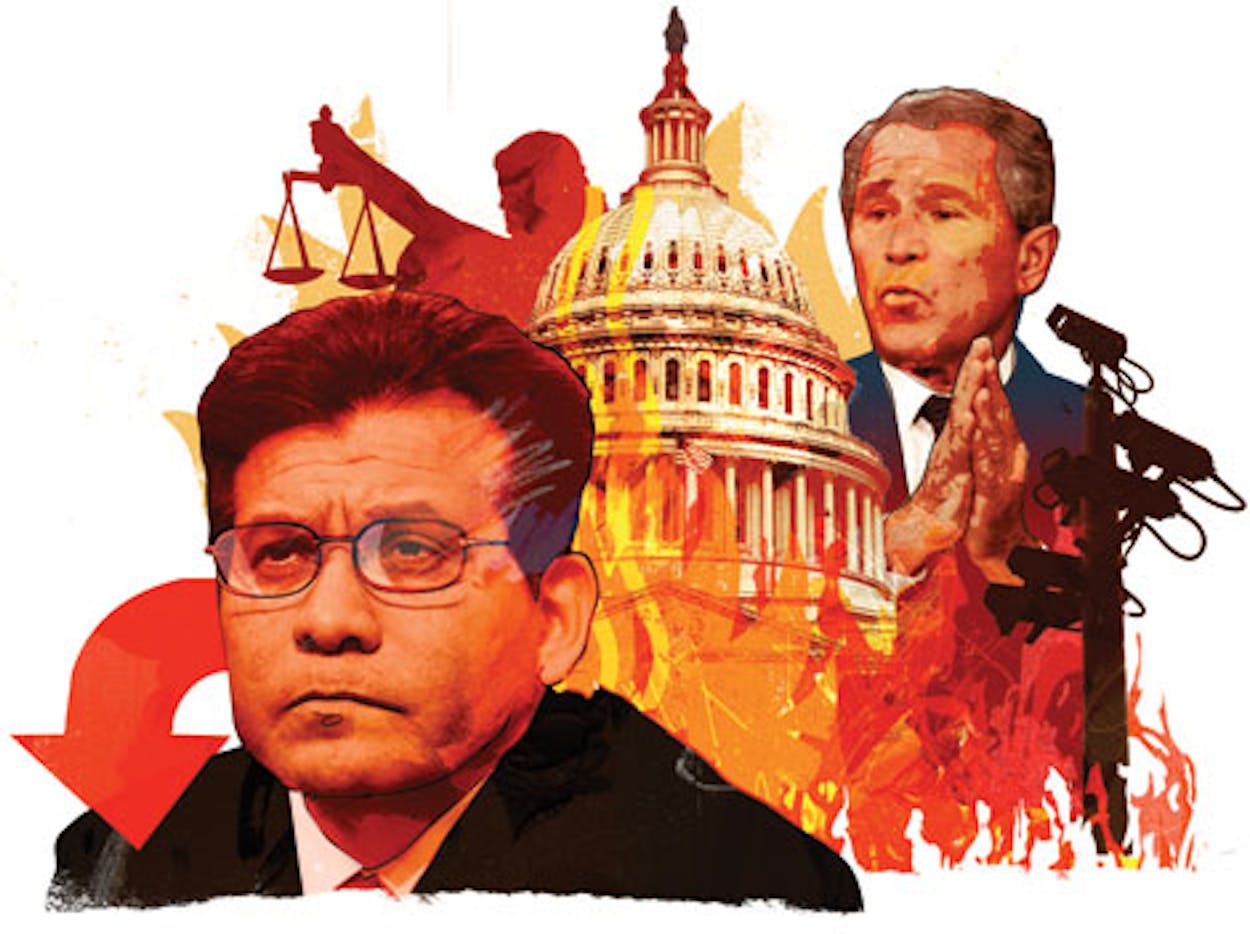The political demise of Attorney General Alberto Gonzales is a unique example of death by a thousand cuts, because his wounds were mostly self-inflicted. The surprise is not that he resigned but that he held on for so long.
Testifying about his role in the firing of eight U.S. attorneys last spring, he had to recant his statement from a prior press conference—“I was not involved in any discussion about what was going on,” he had said—and responded to senators’ questions with some variation of “I don’t recall” 71 times. The lesson of Gonzales’s fall? That loyalty, the most revered value in the Bush pantheon, can be a dangerous thing. A president may think he wants Cabinet officials who will follow him blindly, but he is better served by someone who defines loyalty as not just something he owes the president but also something he owes the country. Gonzales never understood this. He acted as attorney general exactly as he had acted as White House counsel, which was as a lawyer representing his client. As the president’s lawyer, he asserted that it would be unconstitutional for Congress to pass a law that would limit the president’s power to act as commander in chief and that parts of the Geneva Conventions were obsolete in the war on terror. One did not have the sense that Gonzales wrestled with these issues; he just delivered what the client wanted. Is it any shock that when the White House sought to fire U.S. attorneys for reasons that appeared to be political, Gonzales raised no objection? His moral compass pointed only to the White House.
- More About:
- Politics & Policy








